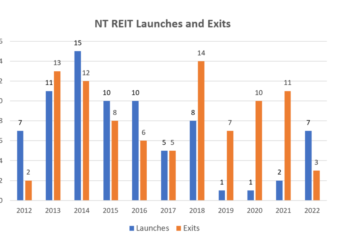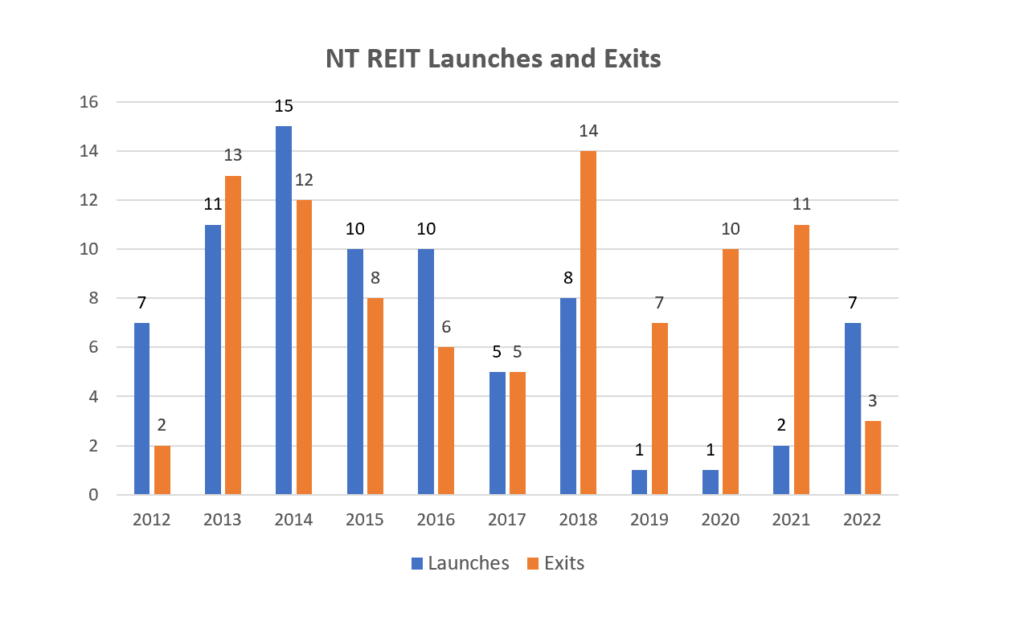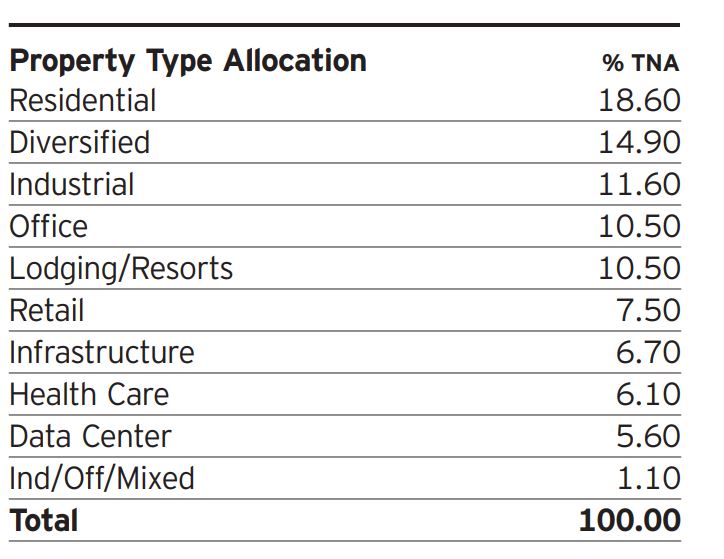Seven Ways Higher Interest Rates Will Change the NT REIT Industry
Higher interest rates can have a significant impact on real estate and the non-traded Real Estate Investment Trust (REIT) industry, affecting various aspects of its operations and performance. Here are seven potential impacts
Cost of Borrowing
Non-traded REITs often rely on debt financing to acquire and develop properties. Higher interest rates can increase the cost of borrowing for these REITs, leading to higher interest payments and potentially reducing their profitability.
Property Valuations
As interest rates rise, the yield on alternative fixed-income investments (such as bonds) also increases. This can make real estate investments relatively less attractive, potentially leading to a decrease in property valuations. Non-traded REITs typically hold a portfolio of properties, and if the value of these properties declines, it could affect the overall net asset value of the REIT.
Dividend Payments
Non-traded REITs often distribute a significant portion of their earnings as dividends to investors. Higher interest rates can lead to increased borrowing costs and potentially squeeze the funds available for dividend payments. Investors may become less attracted to non-traded REITs if the dividend yield becomes less competitive compared to other investment options.
Investor Demand
Rising interest rates can make other investment options, such as bonds or savings accounts, more appealing due to the potential for higher returns with lower risk. This could result in reduced investor demand for non-traded REITs, which may lead to slower capital raising for new projects or investments.
Fundraising Challenges
Non-traded REITs often raise capital through public offerings. Higher interest rates can lead to decreased investor interest in these offerings, as potential investors may seek higher returns from alternative investments that become more attractive due to rising interest rates.
Exit Strategy
One challenge with non-traded REITs is the lack of a liquid secondary market for investors to sell their shares. Higher interest rates could potentially make it even more difficult for investors to exit their positions, as the reduced demand for shares might lead to longer holding periods before finding buyers.
Development and Expansion
Higher interest rates can affect the profitability of new property development and expansion projects. If borrowing costs increase, it might lead to a slowdown in new project acquisitions or developments, impacting the growth potential of non-traded REITs.
It’s important to note that the impact of higher interest rates on the non-traded REIT industry can vary depending on factors such as the specific REIT’s portfolio composition, leverage levels, management strategies, and the overall economic environment. REIT managers typically employ various strategies to mitigate the effects of interest rate fluctuations, such as interest rate hedging or adjusting their investment strategies to adapt to changing market conditions.
Click here to learn more about Non-traded REITs





